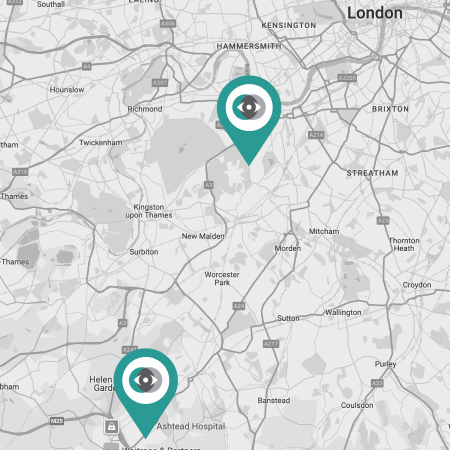Cataracts are the world’s most common cause of vision loss
A cataract occurs when the lens of the eye becomes cloudy, leading to blurred or reduced vision
Cataracts are the world’s most common cause of vision loss
A cataract occurs when the lens of the eye becomes cloudy, leading to blurred or reduced vision
Quick answers to common questions about cataracts
What you need to know about cataracts, from symptoms to treatment options.
In some people who suffer from diabetes or eye diseases such as uveitis, they form slightly quicker. Cataracts can be hereditary and are sometimes seen in children.
Cataracts manifest as cloudiness and opacity within the lens inside the eye. Normally this lens is crystal clear and its purpose is to focus light onto the retina at the back of the eye.
Cataract formation is like the process of cooking an egg. At the start of cooking, the egg white is clear but steadily becomes opaque. A similar process occurs in the lens of the eye. The cloudy lens will not transmit light clearly on the retina therefore causing blurred vision.
Cataracts can also cause a yellowing of the vision. Having cataracts may necessitate an increase in the strength of glasses required to see clearly. Therefore, having to change the strength of your glasses frequently can be an early sign of cataracts.
Cataracts are painless and develop slowly over many years. However, the symptoms can occur over a short period of time. They are very common and most people will require surgery for cataracts at some stage during their lives.
Most people notice that they are having problems in their 60s but they can occur earlier or later.
Finding out if you have cataracts is easy during a regular eye check-up with us or your optometrist. We use a few simple tests to see how your eyes are doing:
- Visual acuity test: This test checks how well you see. You’ll read a chart with letters that get smaller as you go down.
- Slit lamp exam: This is a closer look at the front of your eye using a bright light and a microscope. It helps us spot any cloudiness in the lens.
- Retinal exam: We use special drops to make your pupils (the black circles in the middle of your eyes) bigger. This lets us see the back of your eye, including the retina, which is like the screen where pictures are shown.
These tests tell us if cataracts are causing your vision problems and help us plan the best way to improve your sight.
Right now, there’s no medicine or treatment to stop cataracts from forming or to make them disappear. The only way to fix the problem is surgery, where we remove the cloudy lens and replace it with a clear, artificial one.
- Traditional Cataract Surgery: This is the basic option. We replace the cloudy lens with a monofocal lens. It’s designed to focus at one distance, so you’ll likely need glasses for either close-up or far-away tasks.
- Premium Cataract Surgery: This option uses advanced lenses, like multifocal or toric lenses. These lenses help you see clearly at different distances—near, far, and in between. With this option, you may not need glasses as much.
Cataracts can seem like a big challenge, but the good news is we have effective solutions to remove them. These treatments can help you see clearly again and enjoy life without the blur.
Is it time to remove my cataract?
Cataracts don’t need to be at a certain stage to be removed. If they’re bothering you enough and you’re open to ways to better your vision, it might be time for surgery. You do not have to wait until they are ripe any more.
Will I need glasses after cataract removal?
It depends on the kind of lens we put in.
- A monofocal lens will likely mean you’ll need glasses for reading.
- A multifocal lens can free you from glasses more often, even when reading.
I’ve always read fine without glasses. Will that change post-surgery?
If we put in a monofocal lens for seeing far, you’ll need glasses for reading. But, a multifocal lens lets you see near and far, so you might keep reading without glasses.
I had laser vision correction before. Any issues with cataract surgery now?
No worries. The surgery goes the same way.
But, picking the right strength for your new lens is trickier if you had vision surgery before. So, there’s a chance you might need glasses more often post-surgery.
What’s the difference between monofocal and multifocal lenses?
Monofocal lenses help you see clearly at one distance, either far or near, while multifocal lenses help you see clearly at multiple distances, both far and near.
How long does the surgery take?
Cataract surgery is quick, usually done in about an hour or less.
Is cataract surgery painful?
No, we use medicine to numb your eyes. You might feel some pressure, but it shouldn’t hurt.
How soon will I see clearly after surgery?
Vision often starts clearing up a few hours post-surgery, but full healing can take about 8 weeks.
Can cataracts come back?
Once removed, cataracts don’t come back. But, sometimes the lens capsule can cloud up, which we can easily clear with a quick laser treatment.
What’s the recovery like?
Recovery is generally smooth. You’ll use eye drops to prevent infection and help healing, and you can resume normal activities the next day. We have had patients play tennis the next day on occasion.
Start your journey to rediscover life with clear vision
Book an assessment today and see how cataract surgery can bring back the freedom of clear sight
Start your journey to rediscover life with clear vision
Book an assessment today and see how cataract surgery can bring back the freedom of clear sight

Fix your cataracts and restore clear vision in 3 simple steps
Cataract treatment options can seem complex. We’ve streamlined the process to make it as easy as possible

Step 1: Get in touch
Your journey to brighter, clearer vision begins with reaching out for an initial consultation. Whether you call or book online, this first step will help us understand your vision goals and determine how premium cataract surgery can best serve your needs.

Step 2: We’ll meet
During your consultation, our team will conduct advanced eye exams to assess the type and extent of your cataracts. We’ll discuss premium lens options designed to restore your vision beyond cataract removal, with options for multifocal or extended depth-of-focus lenses that help you see near and far with clarity.

Step 3: Enjoy life
After premium cataract surgery, many patients are amazed by the vibrant colors, crisp details, and enhanced depth they experience. With the right premium lenses, you can enjoy freedom from glasses and confidently engage in daily activities, from reading to enjoying nature, with renewed clarity and joy.
Real success stories of people who transformed their vision
See how people have transformed their lives by breaking free from cataracts and glasses

★ ★ ★ ★ ★“Excellent result. Complete confidence in Paul Ursell. Quiet, quick, and efficient. Peaceful and comfortable hospital.”

★ ★ ★ ★ ★
“The cataract surgery on both of my eyes went very smoothly without any problems. There was no pain afterwards and I didn’t have to wear any eyepatch. I would highly recommend Professor Ursell for cataract surgery.”

★ ★ ★ ★ ★“Highly professional, extremely efficient, and an excellent communicator, Paul exudes experience, knowledge, and ability. The whole process — initial consultation, operation, and post-op check-up — was wonderfully stress-free. I now have 20/20 vision, am glasses-free, and I am delighted by the results.”

★ ★ ★ ★ ★
“The cataract surgery has completely changed my life. Mr. Ursell put me at ease and explained all options. The procedure was quick and painless and completely successful, and I now have 20/20 vision in my good eye. One of the reasons I had the surgery was because of Mr. Ursell’s standing and experience. Cannot praise highly enough.”

★ ★ ★ ★ ★
“I was very short-sighted and my cataracts badly affected both reading and distance acuity. After the operation I now have very good distance vision (glasses-free) but still need glasses for reading. (This was the expected outcome as I did not want multi-focus implants). The operation was quick and painless, and I had no post-operative discomfort at all (which surprised me). The results are remarkable.
I can certainly recommend Professor Ursell. He is a personable consultant and a skilled surgeon.”

★ ★ ★ ★ ★
“Dr. Paul Ursell squashed many of my concerns for not having cataract surgery. He offered comfort with examples of his long/distinguished career and new technology that he applies to the surgery.
Both before and after the surgery, Dr. Ursell and staff gave me the information and attention I needed. It was a great success, and I highly recommend Dr. Ursell.”
We have replaced the images of real patients who provided these testimonials to protect their privacy.
Discover the right cataract surgery for your eyes
Find out in minutes which lens option suits your vision needs and lifestyle best
Discover the right cataract surgery for your eyes
Find out in minutes which lens option suits your vision needs and lifestyle best

FAQs and information about vision correction
Everything you need to know about our practice and procedures
How easy is it to get cataract surgery privately?
How easy is it to get cataract surgery privately? You might be surprised. Learn how simple and stress-free it is with Professor Paul Ursell.
Is private cataract surgery better than NHS?
Is private cataract surgery better than the NHS? Learn about wait times, lens options, and outcomes. Take our quick self-test today.
How do I choose the right surgeon for my private cataract surgery?
Choosing a cataract surgeon? Learn what to look for, what to ask, and how Professor Paul Ursell offers trusted, expert care every step of the way.
Affiliations and memberships
We are proud to be a part of these professional bodies







Hi, I’m Paul Ursell,
I’ve dedicated my career to making cataract surgery safer and easier for patients.
With over 25 years of experience and more than 10,000 cataract surgeries performed, I’m passionate about improving vision and quality of life.
I developed the ‘no needle, no patch’ technique now widely used across the NHS.
As Immediate Past President of the UK & Ireland Society of Cataract & Refractive Surgeons (UKISCRS), I’m here to bring you the highest standard of care.
Paul Ursell
MBBS MD FRCOphth




